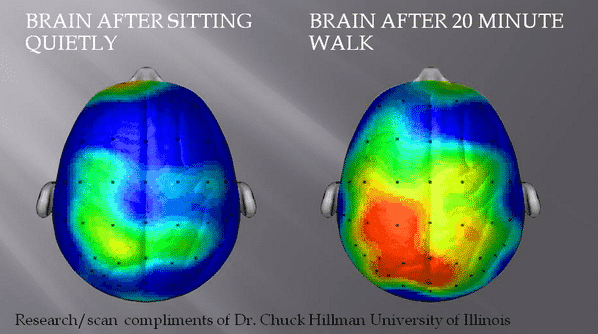Everyone knows about the physical benefits of running, such as preventing and managing a range of health problems including heart disease, type 2 diabetes, and high blood pressure. But, as a healthy woman in my 20s, those benefits were hard for me to grasp. Telling myself, “If you go for this run today, you’ll decrease your chance of having a heart attack in 20 years,” just wasn’t much of a motivator.
However, telling myself, “This run will help you look good in a bathing suit,” or “This run will make you more competitive in Ultimate Frisbee,” could usually get me out the door with running shoes on, albeit begrudgingly. And I disliked every second of it. No runner’s high or engaging podcast could change that. The only good part of the run was when it ended and I knew I wouldn’t have to put myself through that torture again for at least another day. But, what was worse than actually running was the guilt I would feel if I didn’t go. I would really beat myself up and just feel terrible if I didn’t go running when I knew I should.
As I’ve entered my 30s though, I’ve noticed a subtle shift in my frame of mind. After a day of sitting and working in front of the computer, it’s my mind that craves the run. I look forward to being outside, even if it’s along a road. I enjoy the smell of the trees, the fresh air in my lungs, and, weather permitting, the sun on my face. It’s a time to let my mind wander to wherever it wants, or to nothing at all. I listen to music, or a podcast, or just the repetition of my breath and my feet hitting the ground.
As a result of how freeing my mind finds the run, I’m discovering that my body has also started craving the exercise. As an older player on my Ultimate Frisbee team, I notice that going for regular jogs, no matter how short, helps keep my muscles loose. This is not only important for beating the kids 10 years younger than me on the field, but it also makes sitting for work more bearable. More often than not, if I have a headache, it’ll be gone, or at least lessened, after a run.
I’ve been trying to get into a habit of meditating daily, but honestly, most days I simply forget to sit quietly for 10 minutes in meditation. My brain, though, won’t let me forget to go for a run. Running recharges me and has become my meditation. It helps get the creative juices flowing and the cricks out of my neck so that when I sit back down at my computer or move onto my next task, I am that much more productive.
 There is a growing body of research that supports the mental benefits of running. It boosts the levels of the protein brain-derived neurotrophic factor (BDNF), which is vital for keeping neurons healthy and creating new ones. BDNF is important in the brain’s ability to learn and remember, and the prevention of neurological diseases such as Alzheimer’s and Parkinson’s.
There is a growing body of research that supports the mental benefits of running. It boosts the levels of the protein brain-derived neurotrophic factor (BDNF), which is vital for keeping neurons healthy and creating new ones. BDNF is important in the brain’s ability to learn and remember, and the prevention of neurological diseases such as Alzheimer’s and Parkinson’s.
Running can also help you get a better night’s sleep. When you run, your body temperature increases, and the subsequent lowering of your body temperature is a signal to your body to sleep. So, if you run five to six hours before bed, you’ll be ready to sleep by the time your head hits your pillow. Furthermore, running can decrease symptoms of depression and anxiety, increase creativity, and even help people struggling with substance abuse by giving the brain doses of dopamine and serotonin that the body is in withdrawal from.
Although I’ve always known running has a plethora of benefits, it wasn’t until I changed my relationship to running that I started to really enjoy it. By viewing it as an exercise for the mind instead of the body, I have a lot more freedom. Based on how my body feels that day, I can choose to go for a short or long run. If my legs are particularly tight, I don’t go beyond a slow jog. If I’m feeling good, I’ll push myself to sprint up that last hill.
Knowing that my goal is to clear my mind instead of getting a bathing suit ready body, I am more aware of what my body needs in that moment and can respond accordingly. No matter how the run goes, at the end of it my mind feels rejuvenated, so I’m happy.


